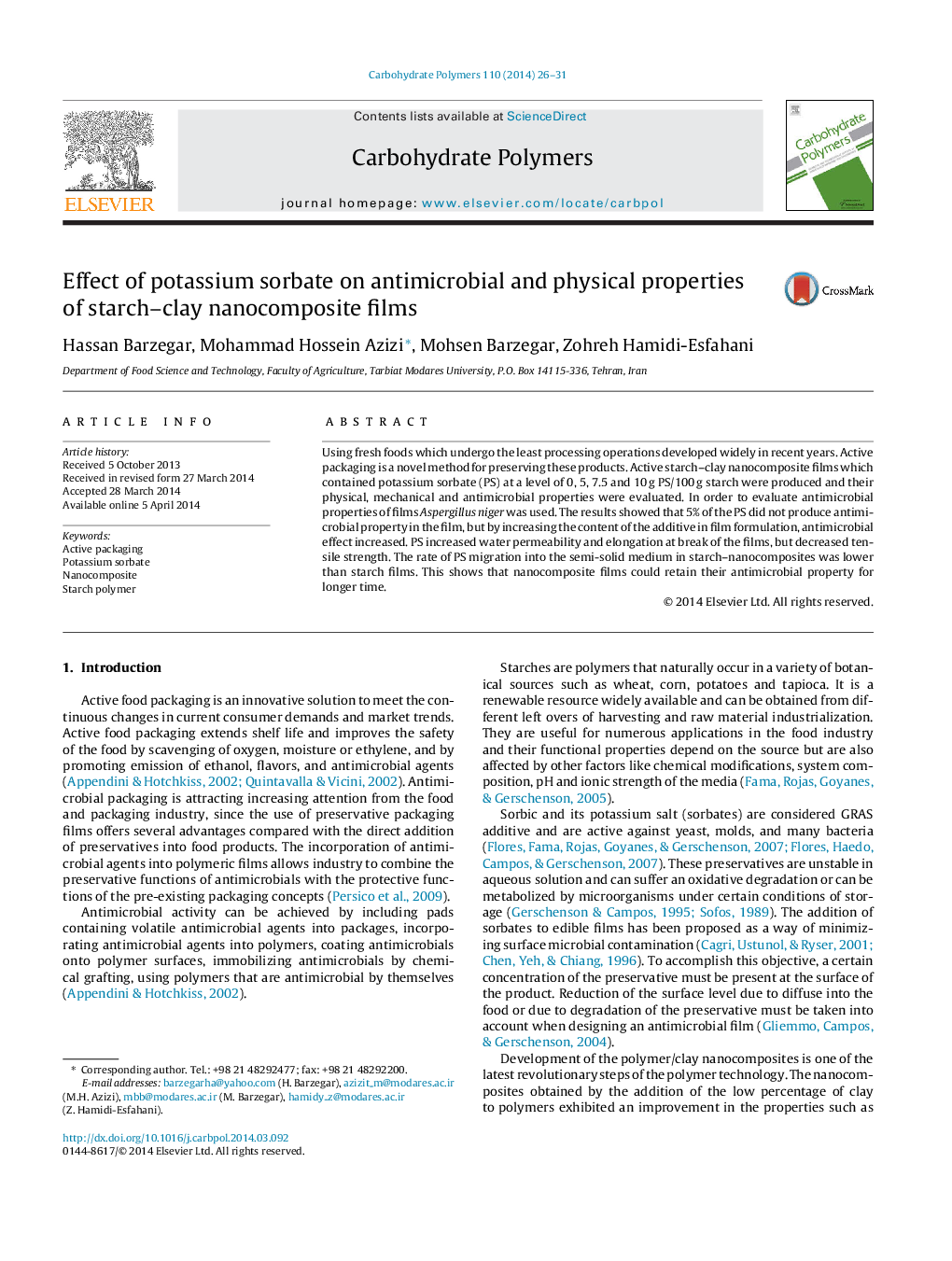| Article ID | Journal | Published Year | Pages | File Type |
|---|---|---|---|---|
| 1385801 | Carbohydrate Polymers | 2014 | 6 Pages |
•The amounts of 7.5% potassium sorbate and more could inhibit the growth of A. niger in vitro.•Addition of silicate layers to the starch films, retard the release rate of antimicrobial agents.•Adding sorbate to the starch–nanoclay films, increased WVP and weakened mechanical properties.•Starch–nanoclay films delayed sorbate oxidation in the active films.
Using fresh foods which undergo the least processing operations developed widely in recent years. Active packaging is a novel method for preserving these products. Active starch–clay nanocomposite films which contained potassium sorbate (PS) at a level of 0, 5, 7.5 and 10 g PS/100 g starch were produced and their physical, mechanical and antimicrobial properties were evaluated. In order to evaluate antimicrobial properties of films Aspergillus niger was used. The results showed that 5% of the PS did not produce antimicrobial property in the film, but by increasing the content of the additive in film formulation, antimicrobial effect increased. PS increased water permeability and elongation at break of the films, but decreased tensile strength. The rate of PS migration into the semi-solid medium in starch–nanocomposites was lower than starch films. This shows that nanocomposite films could retain their antimicrobial property for longer time.
